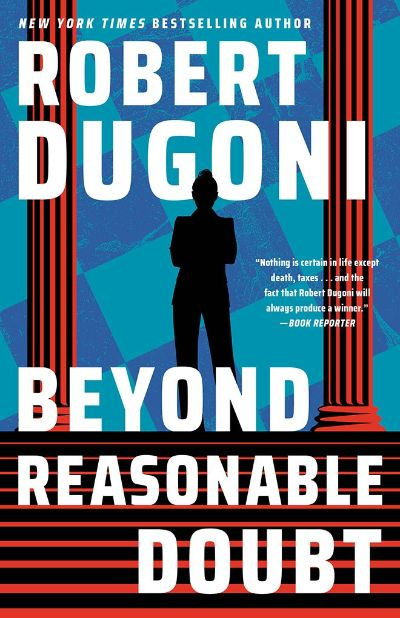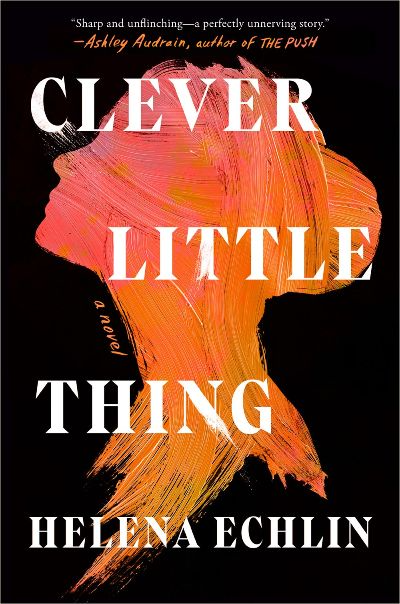Get ready to root for two women, strangers to each other, in this fast moving thriller. Madison, WI waitress Jasmine has readers on a knife edge as she sneaks out of her so-called boyfriend’s trailer in the middle of the night to escape his belittling and violence. Stephanie, news director at a TV station in Madison, has things easier, but is lonely. When she goes to San Diego for a conference she doesn’t return to work. Instead she texts her neighbor that she’s met a great man and tells her job she needs unexpected time off…go, girl! But the trip isn’t as it seems. When the two women’s paths cross each other and that of an odious man, things take very unexpected and thrilling turns, right up to an exciting ending twist. There could be less telling and more showing here, but readers will relish following Jasmine and Stephanie as they take the roads less traveled in this absorbing, tightly plotted debut.
Review
Traumatized by a Himalayan avalanche that nearly killed her and that took the life of a close friend, renowned climber Ingrid Berg has returned to the charming Norwegian mountain hotel that has been her family’s home for 130 years. Putting away her crampons and ice ax, the 33-year-old has taken over managing Glitter Peak Lodge from her octogenarian grandmother. Christmas is coming, and it’s make-or-break time for the financially struggling inn. For the first time in years, the lodge will be open through tne New Year. “We will both continue the traditions of the past and introduce new ones,” Ingrid optimistically tells her staff. But as the days count down to Christmas Eve, Ingrid finds running the business as challenging as climbing Heaven’s Horn, the peak that looms over the hotel and the nearby village of Dalen. And strange things are happening, from last-minute cancellations to a noisy, late-night drive-by car parade of local teens. Is someone trying to sabotage Ingrid’s holiday plans to force her to sell the lodge? And is there a connection to the long-ago disappearance of a young bride? As old secrets are gradually revealed, Ingrid also finds her bruised heart opening up to a childhood sweetheart. With its 24 chapters organized like an advent calendar for daily reading, Johnsen’s second novel and first to be translated into English is a delightful, warm-hearted cozy about the healing power of family and community. Its magical winter setting; appealing, colorful characters; fascinating details on Norwegian Yuletide traditions; and recipes for such regional specialties as Pinnekjøtt (smoked lamb ribs) and krumkaker (cone-shaped Christmas cookies) will have readers booking their next holiday vacation at Glitter Peak Lodge.
Simon Brett is juggling a number of excellent series, but these mysteries, featuring professional declutterer Ellen Curtis, are my favorites. Ellen is a totally believable character, with a complex life involving family, her career, and the lives of her clients, who often come to her in a state of crisis. The major mystery here is the death of 80-year-old Humphrey Carter, a well-known TV personality. Ellen is hired to sort out his study, only to find him slumped over his desk, dead. But minor mysteries abound. Why has Ellen’s 20-something daughter moved home, refusing to talk and leaving an older man to take care of the expenses? And how did her son suddenly pop up on the television, escorting a starlet on Hollywood’s red carpet? There’s lots to figure out here, and even more to make us wait impatiently for the next installation.
Carter’s latest novel answers the question: What if Agatha Christie wrote a rom-com? Maggie Chase writes cozy mysteries, and Ethan Wyatt writes thrillers for the same publisher. Maggie wants nothing to do with Ethan, and for some reason, he keeps calling her Marcie. Forced to fly together when a private jet takes them to a Christmas party hosted by a reclusive fan of their books, they are stunned to learn the host is none other than their favorite author, Eleanor Ashley, who inspired Maggie to start writing. Things get complicated when Eleanor vanishes, and shortly after that, murder joins the party. Maggie and Ethan are forced to trust each other since nobody else on Eleanor’s invite list appears innocent. This fast-paced novel reads like a mix of a terrific Hallmark movie and a Cary Grant movie from the 1930s. The dialogue alone is worth the price of admission. This is the perfect book for fans of Christmas romance and locked room mysteries and it’s understandable why it’s being compared to the last Knives Out movie.
How do you represent a defendant in a court of law when that person is someone you have not trusted since you were a kid? That is Keera Duggan’s dilemma in this terrific follow-up to Her Deadly Game. Keera and Jenna Bernstein were rivals as children, and Keera never liked Jenna, though she tried several times. Jenna would always manipulate Keera and even get her in trouble merely to satisfy her ego. Later, Keera’s dad got Jenna cleared of a murder charge and now she is CEO of a biotech company. Circumstantial evidence has Jenna in hot water again, and only Keera can prove her innocence this time. Dugoni is one of the best in the legal-thriller world, and he finds compelling ways to tell stories that involve injustice. Keera has her work cut out for her because she might believe Jenna is innocent of this crime, but does that make her not guilty of others?
Most of this book takes place in the past, when Londoner Charlotte; her American husband, Pete; and their eight-year-old daughter, Stella, await the arrival of a new baby. Charlotte is mainly focused on Stella, but she resists a diagnosis for her while a mom friend with an autistic child urges her to confirm why their children are so alike. The only person Stella seems to get along with is her odd—bordering on sinister, if you ask Charlotte—babysitter, a young Armenian woman named Blanka. She’s not very attentive to Stella, plays odd games, and will only respond “oh, yes,” to every suggestion Charlotte makes, while never once following through. Things take a turn for the stranger after Blanka dies suddenly. Now Stella seems exactly like her former caregiver, craving her strong meat stew (though the family is vegetarian), speaking like her, and in all ways seeming to channel the strange young woman. Readers will be rapt as the family members each retreat to their different corners of the house, literally and mentally; Charlotte’s beliefs are torn apart; and terrible danger looms ever closer. An unusual debut; readers will certainly be on the lookout for more from Echlin and her brilliant portrayal of doubt, fear, and fractured families.
Fans of Philadelphia’s Mutter Museum and of unsettling fiction are ideal audiences for Fixsen’s “STEMinist” latest. The author introduces Isobel Tait, a desperate nineteenth-century Edinburgh mother. Her only child, a sweet boy named Thomas, is sickly, out of breath at the least exertion. When Isobel finally gets him to see an expert, the renowned Dr. Burnett, the boy’s condition is confirmed to be dire: his heart has a damaged valve and his life will be short. Then Thomas disappears. Frantic Isobel tries everything to find him, but it’s all futile and the police have no leads. When she gives in to a ladies excursion to Dr. Burnett’s display of medical oddities, a tiny, preserved human heart emits—to Isobel’s hearing only—the distinct rhythm that Thomas’s did (the music teacher in Isobel would know it anywhere). What follows is an absorbing and expanding mystery around what happened to Thomas and others like him, as well as an in-depth look at the work of resurrectionists—those who procured and used dead bodies to teach and learn anatomy, with competition for bodies fierce and lucrative. The story is based on real events detailed in an afterword by the author. This is ripe for a bookclub discussion on medical ethics.
Yes, in nearly every way The Sequel is The Plot Redux, but don’t let that stop you for a minute. In most regards, The Sequel is more fun, more sardonic, and much darker—although this is one of the few series in which reading the first book before the second pays enormous dividends. We are back in the world of Anna Williams-Bonner, whose late husband, novelist Jacob, died by suicide. His novel The Plot found its way to the top of the Times bestseller list, leaving Anna doing everything she can to succeed as a literary widow—including touring across the country in Jacob’s stead. Anna gets so into the publishing groove that she actually authors her own debut novel. If only the story could end there. Anna undergoes harassment from someone who knows all too much about her life, her husband, and even her brother. But this anti-hero isn’t one to go down easily. I have no doubt Anna will be kicking her way into #3, to the delight of her many fans.
Calla, 25, has carried her family forever—they’re a “collectively forked tongue, sharp and dangerous”—and their endless needs drag her from the better life she was building. She’s now a fretful, parenting-advice-reading mom to her lovable but wayward younger brother Jamie, 16. Their father is dead; their mean, drunken mother took off; and middle child, Dre, is no help, despite swearing that if Calla became Jamie’s guardian, he’d be there for them. “Redneck Amish Mormons would be better guardians than you,” says Jamie, in one of the book’s many grimly funny moments, and the pinnacle of his unthinking rejection is driving to a Black Lives Matter protest with a group of friends—when he promised Calla he’d stay home—to give the protesters some illicit help. Jamie has been experiencing bizarre moments, such as when his hand dissolves into a girl’s face and he can feel her insides; more of the same happens at the protest, but no excuses can help Jamie with the law when he’s Black and the protest gets violent. Things are simultaneously going monumentally wrong for Dre, who now must also dodge the police; Calla is once again on the hook to save her brothers from themselves. This is where fear and body horror meet hope and love, the siblings’ lengthy battle for one another stretching their emotional and physical limits and revealing their true selves in all their fury and strength. Debut author Viel really brings the horror here, it’s not for the squeamish at all, but those who can brave this epic fight will be rewarded with a story to remember.
Novelist Grady Greene can’t wait to share his good news with his wife, Abby: he’s just made the New York Times bestseller list. He calls her, she’s driving home and not far from their house, only to hear her slam on the brakes, telling him that someone is lying on the road. Then silence. Grady heads out to find her and discovers that the car is empty, the door wide open, her cellphone abandoned, and Abby gone. So begins Grady’s year of mourning for his disappeared wife. To break his melancholia, and kick-start his work on his next book, his agent offers a little cabin on a barely habited Scottish isle. Grady takes her up on the offer, only to discover that there is, you guessed it, no way off the island—what ferry schedule?—and the two dozen or so female-only residents are a bit beyond odd. But oddest of all? The quick glimpses he has of a woman who is the spitting image of his wife. The creepiness, the occasional bursts of humor, the horrendous history, and of course the inevitable twists, all of which layer over one another, make for one terrifying ride.










